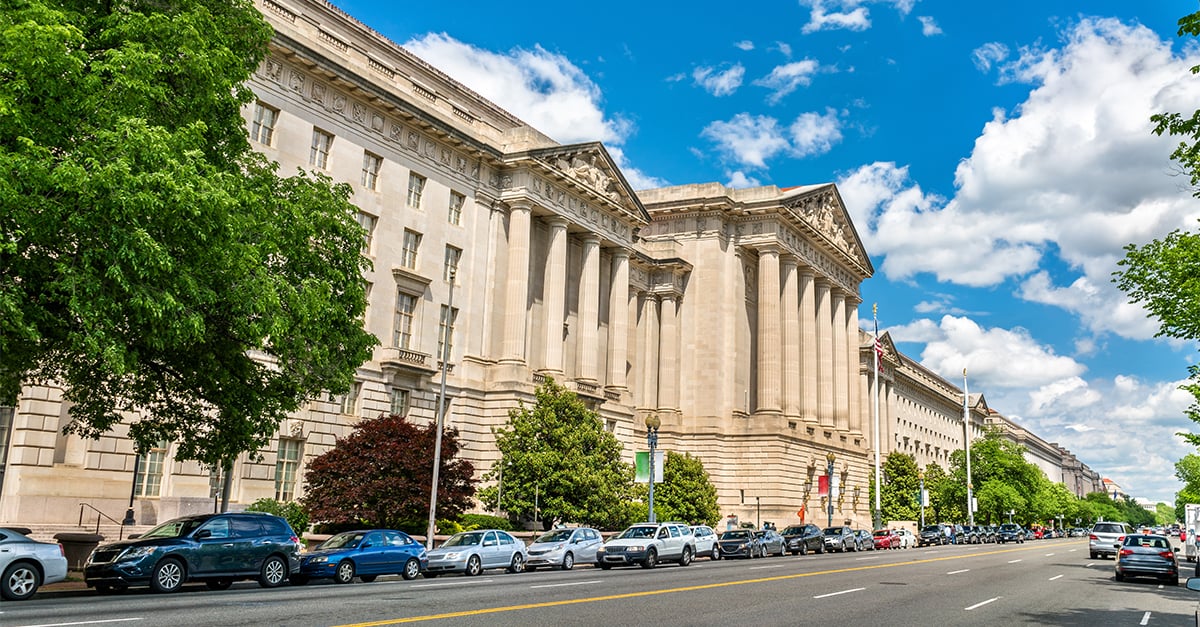U.S. EPA Announces New “Strategic Civil-Criminal Enforcement Policy”
On April 17, 2024, the U.S. Environmental Protection Agency (EPA) published its “Strategic Civil-Criminal Enforcement Policy,” a landmark new internal enforcement policy for its civil and criminal enforcement offices (the Policy) that signals a paradigm shift in how the agency will assess, coordinate, and prosecute civil (including administrative) and criminal environmental enforcement. In the Policy, EPA states that it has already started increasing communication and collaboration between its enforcement offices in recent years, which EPA believes has led to better case screening and more consistent enforcement responses across regions. But the Policy goes far beyond those less formal efforts and reflects EPA’s stated goal to continue toward an integrated approach, moving away from its prior, more bifurcated approach to civil and criminal enforcement.
Fifth Circuit Limits EPA’s Attempts to Regulate PFAS Under Toxic Substances Control Act in Inhance Technologies v. EPA
On March 21, 2024, the U.S. Court of Appeals for the Fifth Circuit vacated two U.S. Environmental Protection Agency (EPA) orders under Section 5 of the Toxic Substances Control Act (TSCA), holding that EPA had exceeded its statutory authority when it issued the orders in an attempt to regulate the manufacture of per- and polyfluorinated substances (PFAS) by petitioner Inhance Technologies, LLC (Inhance). The Fifth Circuit’s decision comes after EPA’s Office of Enforcement and Compliance Assurance announced its National Enforcement and Compliance Initiatives for Fiscal Years 2024 – 2027, which involve increased emphasis on addressing PFAS exposure and contamination through enforcement actions and potential additional regulations.
The Enforcement Angle: David Uhlmann and OECA
Join Sidley for the Environmental Law Institute’s People Places Planet Podcast series, “The Enforcement Angle.” Through this series, Sidley partners discuss state and federal enforcement of environmental laws and regulations with senior enforcement officials and thought leaders on environmental enforcement in the United States and globally. The featured guests offer their insights into the challenging environmental issues facing corporations today. (more…)

U.S. EPA Enforcement Office Issues a Climate Enforcement and Compliance Strategy Memorandum
On September 28, 2023, the U.S. Environmental Protection Agency (EPA) Office of Enforcement and Compliance Assurance (OECA) issued a memorandum outlining a Climate Enforcement and Compliance Strategy, identifying several steps the office plans to take to address climate change (the Strategy Memo). As part of the strategy, EPA plans to expand its efforts to address climate change by increased enforcement of rules governing greenhouse gas–forming pollutants and incorporating climate-related mitigation efforts, including renewable energy projects into settlements as mitigation or supplemental environmental projects. The Strategy Memo comes only a month after EPA issued its first-ever national enforcement and compliance initiative on climate change.

Regulated Entities in California Communities May Face More Investigation and Enforcement by California Air Resources Board
Regulated entities in designated communities — compiled and termed the “Consistently Nominated AB 617 Communities list” — will want to pay close attention to updates from the California Air Resources Board (CARB) on its Community Protection Program Blueprint 2.0. Currently, communities in the Bay Area, Imperial, San Joaquin Valley, Sacramento Metropolitan, and South Coast air districts are on the list. As part of a mandate to reduce toxic air contaminant and criteria pollutant emissions in communities that have a high cumulative exposure burden, CARB is updating the Program Blueprint 2.0 as required under Assembly Bill 617, adopted by the California Legislature July 26, 2017. CARB’s present revisions may result in increased investigation and enforcement of regulated entities in these communities.
U.S. EPA Updates Environmental Justice Mapping Tool for a Third Time: EJSCREEN 2.2
On June 26, 2023, the U.S. Environmental Protection Agency (EPA or Agency) announced via e-mail to its EJ ListServ the third update to its environmental justice (EJ) mapping and screening tool, EJSCREEN. EPA uses EJSCREEN to inform several Agency functions, including permitting, enforcement, outreach, and compliance.
The Enforcement Angle: Driving California Toward Carbon-Neutrality with Dr. Steven Cliff
Join Sidley for the Environmental Law Institute’s People Places Planet Podcast series, “The Enforcement Angle.” Through this series, Sidley partners discuss state and federal enforcement of environmental laws and regulations with senior enforcement officials and thought leaders on environmental enforcement in the United States and globally. The featured guests offer their insights into the challenging environmental issues facing corporations today.
The Enforcement Angle: Corporate Compliance Monitors
Join Sidley for the Environmental Law Institute’s People Places Planet Podcast series, “The Enforcement Angle.” Through this series, Sidley partners discuss state and federal enforcement of environmental laws and regulations with senior enforcement officials and thought leaders on environmental enforcement in the United States and globally. The featured guests offer their insights into the challenging environmental issues facing corporations today.
The Enforcement Angle: DOJ’s Environment & Natural Resources Division
The United States has an intricate system of laws, regulations, policies, and programs to respond to environmental and public health concerns. Enforcement is vital to that system’s effectiveness. The U.S. Department of Justice’s Environment & Natural Resources Division (ENRD) is tasked with enforcing the United States’ civil and criminal environmental laws, including the Clean Air Act, Clean Water Act, and hazardous waste laws. Their mission also involves the protection of the Nation’s natural resources and handling cases relating to tribal rights and resources.
The Enforcement Angle: The New Mexico Environment Department
Join Sidley for the Environmental Law Institute’s People Places Planet podcast series, “The Enforcement Angle.” Through this series, Sidley partners discuss state and federal enforcement of environmental laws and regulations with senior enforcement officials and thought leaders on environmental enforcement in the United States and globally. The featured guests offer their insights into the challenging environmental issues facing corporations today.

